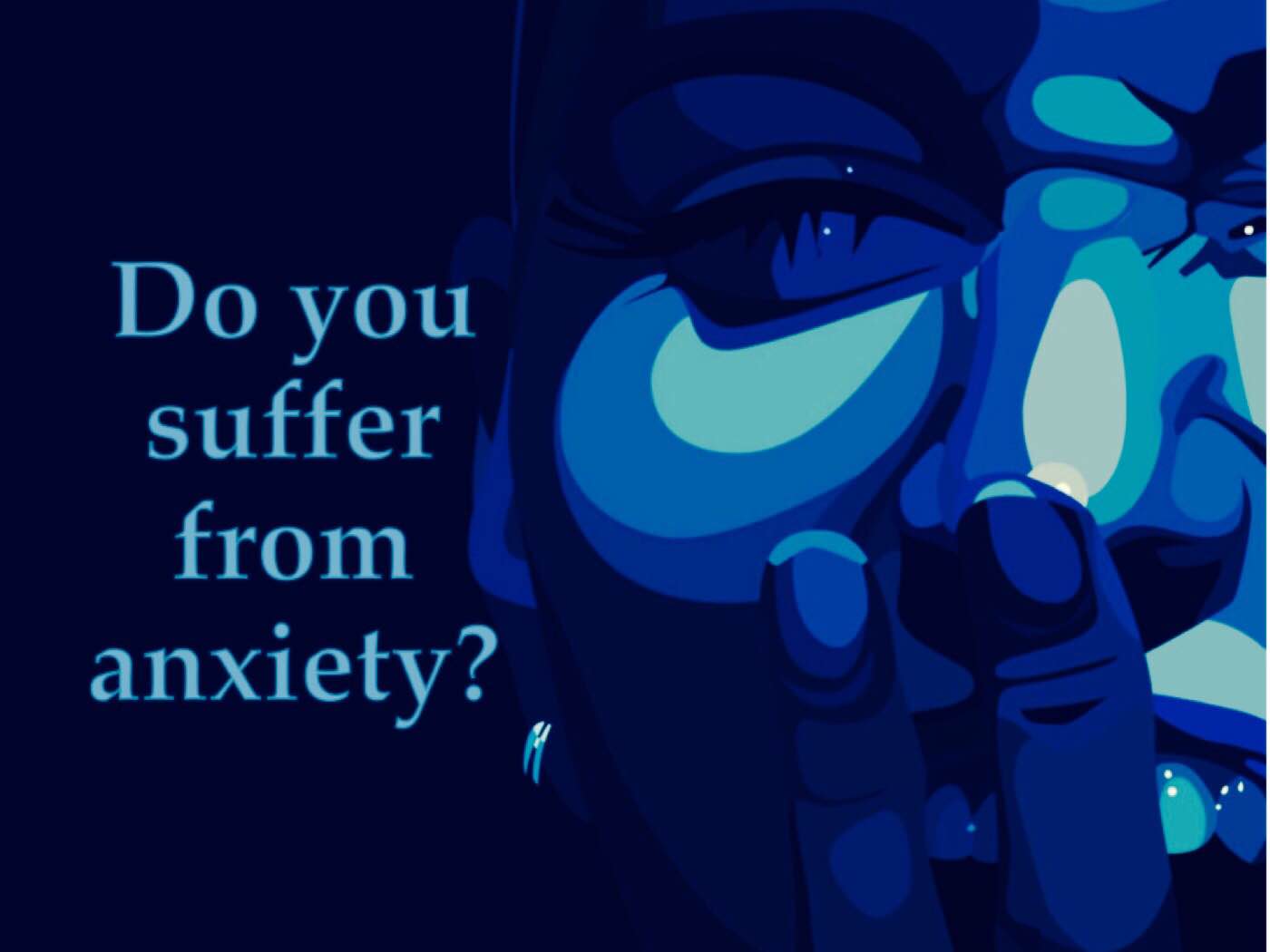Anxiety afflicts millions of people throughout the world, and is the most prevalent form of mental dis-ease in the U.S., affecting 40 million people, or 18% of the population. Feeling some anxiety surrounding certain events in your life, such as a move to a new city, is totally normal. So it should not cause you any concern. However, when your anxiety starts to disrupt your everyday life, you need to acknowledge it and try to figure out where the feelings are coming from, and what they’re trying to tell you.
Many people live with debilitating anxiety, and don’t speak up out of embarrassment or fear or being judged. However, your mental health is vitally important, and should be taken seriously. If you start noticing these signs, it’s time to take action so you can start enjoying life again.
Here are 6 signs anxiety is controlling your life:
1. You have developed insomnia.
Researchers continue to speculate on whether anxiety causes insomnia, or vice versa; however, scientists reveal a clear association between the two. If you regularly find yourself tossing and turning in bed, have trouble quieting your mind, and just can’t seem to relax, you might have an anxiety disorder. Most people have difficulty falling asleep at one point or another, but if this occurs regularly, you need to examine your life closely and try to pinpoint why you feel so anxious that it keeps you awake at night.
2. You feel anxious about seemingly simple things.
People with anxiety disorders tend to overthink and worry about minor issues, as well as larger ones. Having some fears about traveling overseas or giving a speech or starting a new job is perfectly normal, but when the worry spills over into your every day life and disrupts your routine, the alarm bells should start to go off in your head.
As we grow up, we tend to have more responsibilities and life just gets more hectic. However, worrying about life so much that it becomes unenjoyable and stressful can really do damage to your physical and mental health. When you notice your mind starting that predictable cycle of overthinking, worrying, and stressing, bring your attention back to the present moment. Focus on your breath, your body, and your current surroundings. Surrender to the now, and you will notice the anxiety begin to fade, and your thoughts will start to release their grip on you.
3. You have frequent headaches.
Regular headaches can also point to an anxiety disorder. According to the Anxiety and Depression Association of America, migraines and headaches occur frequently in those who have anxiety disorders. This can indicate that you have an unhealthy amount of stress stored within your body, and overthinking and worrying can cause an overproduction of the stress hormone cortisol. In our hectic world, it might seem very difficult to control your thoughts and clear your mind, but start challenging the thoughts that enter your head. Do they help you, or hurt you? Only pay attention to the ones that encourage you, and counter the negative thoughts with positive ones.
A lot of our stress in life is self-imposed, so changing out outlook can do wonders for our mental health.
4. You regularly cancel plans with people.
This commonly occurs with people who have social anxiety disorder. About 15 million Americans suffer from this disorder, and unfortunately, 36% of sufferers wait 10 years or more before getting help. Of course, people who have other types of anxiety disorders may cancel plans as well, but it occurs most often in those with social anxiety. Cancelling plans once in a blue moon doesn’t indicate a problem, but when you find yourself doing it frequently, you need to ask yourself why you don’t want to socialize with others.
Socializing and building relationships are an important part of life, so depriving yourself of these experiences can really put a damper on your mental state. If your anxiety controls your life so much that you start drifting away from others and distancing yourself from close friends and family, you need to check in with your emotions and try to figure out why you suddenly don’t enjoy social events with others.
5. You have digestive problems.
Anxiety begins in the mind, but you can actually have physical symptoms as well. According to the Anxiety and Depression Association of America, 50-90% of people with Irritable Bowel Syndrome also have a psychiatric disorder such as anxiety or depression. The colon is partially controlled by the nervous system, which explains why those with severe anxiety and stress tend to have digestive problems. If you have regular stomach and intestinal problems, you might consider incorporating relaxation techniques into your day to help you calm your thoughts and bring peace into the body.
6. You have muscle/joint pain.
Tight muscles and joints can also indicate an anxiety disorder. Any tightness you feel in your body represents stress that you haven’t let go of yet, so start becoming more aware of your body. Start with your head and work your way down, mentally taking notes of what you find. Meditation, exercise, a massage, and stretching can all combat tight muscles and joints, so make sure to take care of your body, because this will improve your mental health drastically, as well.



















